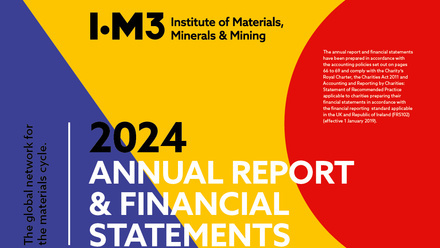In a spin about spin-outs
Creating a conducive ecosystem for university spin-outs to thrive

This is a critical moment for commercialising research, asserted Alice Frost, Director of Knowledge Exchange at Research England. She was speaking at a Westminster Forum on ‘University spin-outs: next steps for development and commercialisation in the UK’.
In late 2023, the UK Government accepted all the recommendations from an Independent Review of University Spin-out Companies (see box-out below).
Research England asked universities to consider voluntary adoption of the recommended practices by late 2024. Since, 58 universities have signed up, with 52 in England, three in Scotland, two in Wales and one in Northern Ireland.
'Spin-outs are one part of a much bigger contribution universities can make to economic growth,' Frost noted. However, she felt it was important to highlight that universities with few spin-outs should not feel obliged to create a policy.
Research England has allocated £4.7mln across multiple pilots and has 13 collaborations with 49 different universities, involving other research organisations, hospitals, law firms, business angels and investors across all regions of England and all approaches, including regional focus versus technological, like artificial intelligence (AI).
Creating a conducive ecosystem
Dr Alison Campbell, CEO of the Government Office for Technology Transfer (GOTT), points to the UK’s vibrant research commercialisation environment. She identified three enablers of innovation. Firstly, to take some risk. 'It’s trying, it’s failing, it’s iterating and it’s then succeeding.'
Another was the right learning environment and, thirdly, embedding the practices as business-as-usual, which she didn’t think was happening yet. She called for 'more risk-takers and money'.
Dr Stuart Wilkinson, CEO of membership organisation Knowledge Exchange UK, identified six Ps to aid spin-out development – the proposition, pounds i.e. funding, people, programmes to support, places and policies.
'There is a need for skills development for these companies as they grow in scale and, particularly in clusters, there is a need to support the workforce. So, skills programmes, student and talent development [are needed],' Wilkinson reflected.
Professor Chas Bountra, Pro-Vice Chancellor for Innovation at the University of Oxford, highlighted how their ecosystem has grown. '[In the 1980s], nobody talked about innovation or enterprise or commercialisation, and frankly, industry was a dirty word in Oxford.'
He points to three culture changes in 10 years, with the first being the development of Oxford Science Enterprise in 2015, which has now commercialised around 120 companies. There are a growing number of senior academics who are serial entrepreneurs and can act as role models.
The AstraZeneca COVID-19 vaccine was the second shift, where many colleagues saw how multiple, academic, industry and government partners could deliver such a project at scale in only nine months.
He flags the forthcoming £1bln Ellison Institute for Technology at Oxford as the next change, with its focus on healthcare, climate, food production and governance.
Bountra aspires to develop an ecosystem to match places like Boston, USA, with its big pharma industry, thousands of biotech and medtech businesses, venture capital companies, large hospitals and billionaire investment, 'because that’s when they really do change the world. That’s when they create thousands of jobs and lots of tax revenue for the country'.
Oxford University has 300+ spin-outs on its periphery. 'We’ve got science parks that are growing like crazy,' exclaimed Bountra, including 'amazing national infrastructures at Harwell and Culham'. Its clusters include life sciences, space and satellites, AI and quantum.
The city is also partnering with the universities of Queen Mary, Liverpool and Birmingham.
Nicola McMillan, Team Leader of High Growth Company Creation at Scottish Enterprise, said her 20-year-old team looks after 19 universities, research institutes and the NHS across Scotland. The organisation aims to maximise the economic potential of Scotland’s assets, with universities adding an estimated £8bln to the economy.
Her team has ~£300k per project for grant funding and £400k of convertible loan investments for companies spinning out. They work with around 45-50 opportunities at a time, and focus on high-growth companies with disproportionate economic impact, collaborating with universities where commercialisation is not a well-used business choice.
Marty Reid, Executive Director of the SETsquared Partnership, also discussed their 20-year collaboration with six research-intensive universities across the southwest of the UK. Their programmes work with entrepreneurs and accelerators, sharing best practice and resources.
He shared news of their £300mln investment vehicle for spin-outs and start-ups in areas that have global impact – such as sustainability, clean energy and transformative healthcare.
In the last 12 months, Reid reported their spin-outs have raised more than £0.25bln in private equity, for around 40 companies at different stages. He sees 'real growth and depth in areas like optoelectronics, semiconductors and sustainable materials'.
Paul Devlin, Head of Research Commercialisation and Impact at Cardiff University, UK, is part of SETsquared’s IMPACT-IP programme, alongside angel investors, venture capitalists and other universities to create a ‘deal playbook’.
Meanwhile, Imperial College London is extending its White City campus to create a ‘tech corridor’, with a new venture fund called Science Capital Imperial.
Imperial spins out 10-15 companies annually, with around half in health, from therapeutic companies to neural interfaces. Simon Hepworth, then Director of Enterprise at Imperial, noted four recent businesses that have generated more than £200mln.
While, Newcastle University’s portfolio is developed mainly through the Northern Accelerator and a collaboration of all North East England universities.
Rick McCordall, Head of Company Creation at Newcastle, called it 'transformational' for developing a framework for spin-out companies and leveraging funding. It has also enabled them to do proof-of-concept work.
Newcastle University’s own £22.5mln spin-out fund, due to launch this year, is another North East university partnership with money from the Mayor. It will support early-stage companies and scale up others, targeting up to 15 spin-outs a year.
On the other hand, Edinburgh University is a member of Ten-U, the international collaboration to capture effective practices in research commercialisation.
Dr Barbara Blaney, Senior Enterprise Executive at Edinburgh Innovations, explained that its 2023 University Spin-Out Investment Terms (USIT) Guide is 'absolutely key for us' internally, but also in the advice for academic clients and projects. She said Edinburgh and like-minded universities want to share best practice to help company formation.
They also started a Venture Builder Incubator in 2021, through which 131 companies have raised £8.8mln in grants and funding, and the AI Accelerator programme has supported 94 companies and raised £76.7mln.
As of August 2024, Edinburgh had launched 127 companies, with 116 led by students and 11 by staff. 'It’s a village that really creates these spin-out opportunities,' Blaney said. The University has 1,000 academic staff working on innovation activity and, in 2023-24, had 14 spin-outs in operation.
Campbell added, 'I think collaboration is at the heart of this.'
Frost noted that Research England has been funding projects for over 25 years and saw progress on collaboration through their Connecting Capability Fund, which since 2017, has developed some big university venture funds like Northern Gritstone and Midlands Mindforge.
But she asked, 'Is there something cleverer we could do, so that we’re not relying on short-term projects?'
Bountra felt it was wonderful universities were converging. 'We’ve got great talent, we’ve got passionate entrepreneurs, and we’ve got some great innovators and great researchers. Let’s use all of that.'
He continued, 'I love what we’ve done over the past 18 months, at least with the USIT guidelines. All our partners in this sector are coming together to share learnings, support each other, come up with joint policies. We’re saving each other a lot of time and effort.'
Campbell thought there could be ~£100bln of intangible knowledge assets that could be mined, serviced, developed and put into practice.
Wilkinson added, 'Spin-outs are inevitably a really crucial part of being agile in where we develop new clusters, new technologies, new sectors as a whole. And so, I hope that it will be a really key part of how we support the growth and scale up of those companies with their particular needs.'
Blarney noted, 'What we can all do in terms of SME development…and anchoring them, not only regionally, but within the UK, is super important for GDP.'
Finding their feet
Boosting the platform for female entrepreneurs is also a priority. Bountra shared that Oxford University wants to support more female entrepreneurship, while McMillan mentioned Scottish Enterprise’s female founders’ programme, which launched at the start of 2024 and had 10 applicants from different universities.
Blarney revealed that women lead 55% of the University of Edinburgh student start-ups, 17% of staff spin-outs and 12% of staff start-ups.
Kerry Baldwin, Managing Partner and Co-Founder of IQ Capital, advised spin-out leaders to attend other pitches to see what resonates, and to talk to investors and later-stages of fund-raising to help cement their vision.
She warned, 'Don’t give everybody C-levels [highest-level leadership positions e.g. CFO] at that round, you’re going to have to replace them as you get to Series B. And it’s always messy.'
Fenella Boyle, former Co-Founder and CEO of spin-out Versed AI, commercialised a Cambridge University researcher’s PhD. With experience as an angel investor, she warned, 'If you’ve given away too much equity early on, your company will become un-investable'.
Hepworth advised using capitalisation table provisions for potential changes in leadership, such as by using options, which are rights to purchase shares at predetermined prices.
He noted, there are few spin-outs where the academic is stepping out full time with their role.
Hepworth then cited analysis from Osage University Partners, USA, which found, 'A PhD student who sets up a spin-out and becomes its CEO is 21% better at returning an investor’s money than a serial founder, and 46% better than a former CEO from a large company'.
Imperial finds venture capital funds who helicopter in CEOs to spin-outs. Hepworth says commercial skills are more of a challenge than technical ones, with leadership change happening often and usually being 'a highly emotional experience'.
Frost wants a national conversation on spin-outs, particularly about equity. Newcastle University has reduced theirs to a 25% maximum, says McCordall, but has a minimum of 5% depending on the sector. They prefer equity to IP-licence fees or anti-dilution arrangements, and don’t believe their take has impeded any spin-out from securing funding.
Devlin said their deals have royalties in the 10-24% equity range. 'As my chief financial officer likes to point out, you can’t pay patent bills with share certificate. It’s just trying to get that balance between liquidity and allowing the company plenty of room to grow.'
Seven of Cardiff University’s recent spin-outs all had external investment and external management, which Devlin said was critical.
Bountra said Oxford University wants to attract many more investors, corporates, scale-up entrepreneurs and develop more innovation space. He admitted they need funding at all stages, so universities could deliver on the government agenda.
Funding support and policy
Blaney praised the support from programmes like Innovate UK’s Innovation-to-Commercialisation of University Research and Scottish Enterprise’s High Growth Spinout. 'Advice to proof-of-concept funds is absolutely key,' she said.
However, she warned that small amounts of funding lead to an under-capitalisation of projects and spin-outs, and Technology Readiness Levels do not progress.
Campbell’s team run a proof-of-concept fund, a knowledge-asset network for government and the public sector, and deliver skills training.
Campbell referred to the £110mln public sector seed fund UKI2S as a hidden gem as it invests early, before traditional venture capitalists and even other seed funds. It helps a spin-out derisk, syndicate early and get additional private sector funding before exiting. She reported £950mln in co-investment, or £22 per government pound.
Boyle acknowledged Innovate UK’s COVID-19 funding as 'pivotal for us to be able to bridge that gap towards raising a funding round'. After joining the Tech Nation Accelerator, her business grew and was sold to a partner in summer 2024. She emphasised seeing the potential, not the downside, and to avoid onerous legal terms and conditions.
On the government’s pledge to invest £40mln over five years in a proof-of-concept fund, McMillan would 'absolutely challenge £40mln' and urged policymakers to understand it is not an overnight success story.
She noted Innovate UK has plans to mimic her high-growth spin-out programme and the supportive structure within Scottish Enterprise on investment.
McCordall said the equivalent of Scottish Enterprise for the North of England would also help drive some money from the golden triangle of London, Oxford and Cambridge. He thought Newcastle’s spin-outs to be equally good, despite a challenging operating environment.
Baldwin reflected that the government’s forthcoming Industrial Strategy, and the strategies that sit below it, such as the science and technology framework that influences universities, were critical.
Reid praised recent policy work in supporting market interest. He identified deep connections with industry outside of the life sciences as a weakness. 'The path to commercialisation into aerospace and to clean energy are being developed, so some tangible connection to those industry sectors could be great.'
Boyle noted, 'Universities are becoming capital starved…if you’re not recruiting the brightest and the best, then the quality of your research and the quality of your start-up pipeline is going to deteriorate, and we’ll probably see that in three-to-five years.'
She also advised that Technology Transfer Offices (TTOs) need to be well funded, and reflected that many smaller universities, particularly in the north, have much smaller TTOs, which could be government assisted.
Removing bottlenecks
Completing deals quickly and avoiding horrible legal arrangements is also critical, Boyle shared.
Devlin noted that deal speed was a recommendation of the spin-out review, and reported that seven spin-out companies from Cardiff University recently completed a venture capital raise in under a month. 'We’ve really tried to move at pace and just make sure that we are not the bottleneck.'
Reid revealed SETsquared’s ‘deal playbook’ could help regional TTOs and institutions with a small volume of deals.
Sector visibility
Frost deplored how often she had heard UK universities were the worst at commercialisation. She thinks data collectors should boost sector visibility and is frustrated spin-out numbers are not collected.
Research England, in collaboration with the Higher Education Statistics Agency and Cambridge’s Policy Evidence Unit for University Commercialisation and Innovation, is devising a public register of all active, UK spin-outs. It should include regional growth, and teacher and student metrics.
Campbell thought 'it would be brilliant' if people are more vocal about risks, failures and learnings. 'That is something that would really help embed a lot of this culture, and actually might increase pace, because we’d be keener to take more risk, because we could see how positive failure can be.'
'I hope we are moving to a broader base for the types of organisations that universities are building,' Hepworth noted. He labelled university innovation 1.0 in the 1990s as being focused on TTOs and IP licensing, while 2.0 to be about ecosystems. He thought 3.0 could bring convergence ventures that solve many different problems, and referenced Imperial’s plan to create four schools of interdisciplinary research activities with a precursory AI-focused IX Institute.
Hepworth thought a convergence leader needs great empathy, emotional intelligence and communication skills, and queried if academia honed those skills. He suggested PhD studentships could help researchers start companies, without risking their academic careers.
Bountra said that, as well as teaching and research, society expects universities to boost the economy, train entrepreneurs, solve global problems, develop new technologies and create new industries. He thinks they attract talent, corporates, investors and philanthropists into the country well.
Frost cautioned against 'over-fetishising spin-outs', as they are not a good fit for certain disciplines, such as some creative industries or big engineering projects.
Campbell concluded, 'We have got super frameworks in place. We’ve got loads of really good examples. We’ve got terrific TTOs and innovation offices, a nice seed funding system. Our problem is, how do we scale and how do we help these companies stick?'
Spin-out review recommendations
In 2023, the UK Government accepted the following recommendations from an Independent Review of University Spin-out Companies that was led by Professor Irene Tracey CBE, Vice-Chancellor of the University of Oxford and member of the Medical Research Council of UK Research and Innovation; and Dr Andrew Williamson, Managing Partner of Cambridge Innovation Capital and Chair of the Venture Capital Committee at the British Private Equity and Venture Capital Association.
The recommendations of the review were:
- Accelerate towards innovation-friendly university policies that all parties, including investors, should adhere to.
- More data and transparency on spin-outs through a national register of spin-outs.
- Higher Education innovation funding should reduce the need for universities to cover the costs of Technology Transfer Offices (TTOs) from spin-out income.
- Create shared TTOs to help build scale and critical mass in the spin-out space for smaller research universities.
- Increase funding for proof-of-concept funds to develop concept confidence.
- In developing the ‘engagement and impact’ and ‘people and culture’ elements of the next version of the UK’s Research Excellence Framework, the four Higher Education Funding Bodies should ensure that the guidance and criteria strongly emphasise the importance of research commercialisation, spin-outs and social ventures as a form of research impact.
- Founders need access to support from individuals and organisations with experience of operating successful high-tech start-ups, regardless of the region founders are based in, or sector they operate in.
- UK Research and Innovation should ensure all doctoral students they fund have a voluntary option of attending high-quality entrepreneurship training, and increase the opportunities for them to undertake internships in local spin-outs, venture capital firms or TTOs.
- Recognising how university-affiliated funds help spin-outs from some regions access finance.
- Ongoing reforms to support scale-up capital.
- Government should improve funds to enable movement or porosity between academia and industry.







